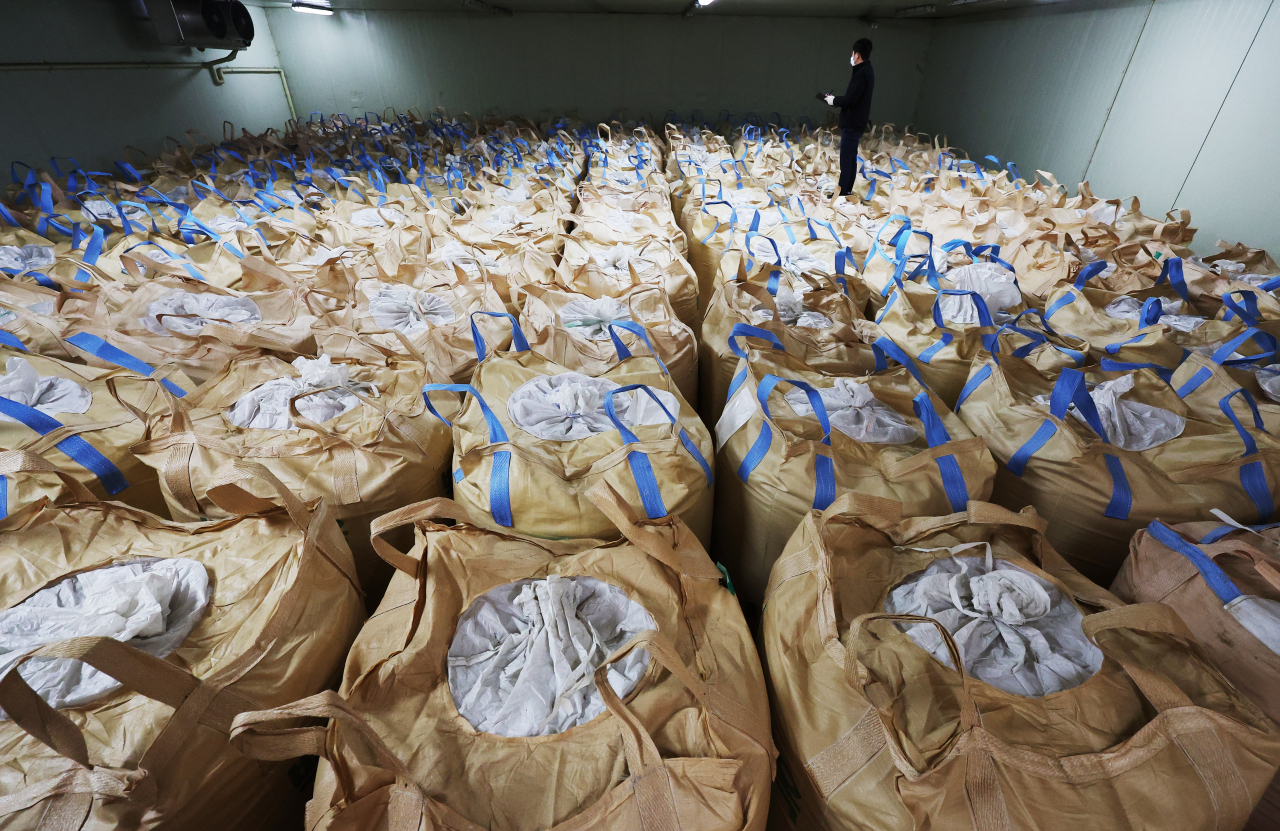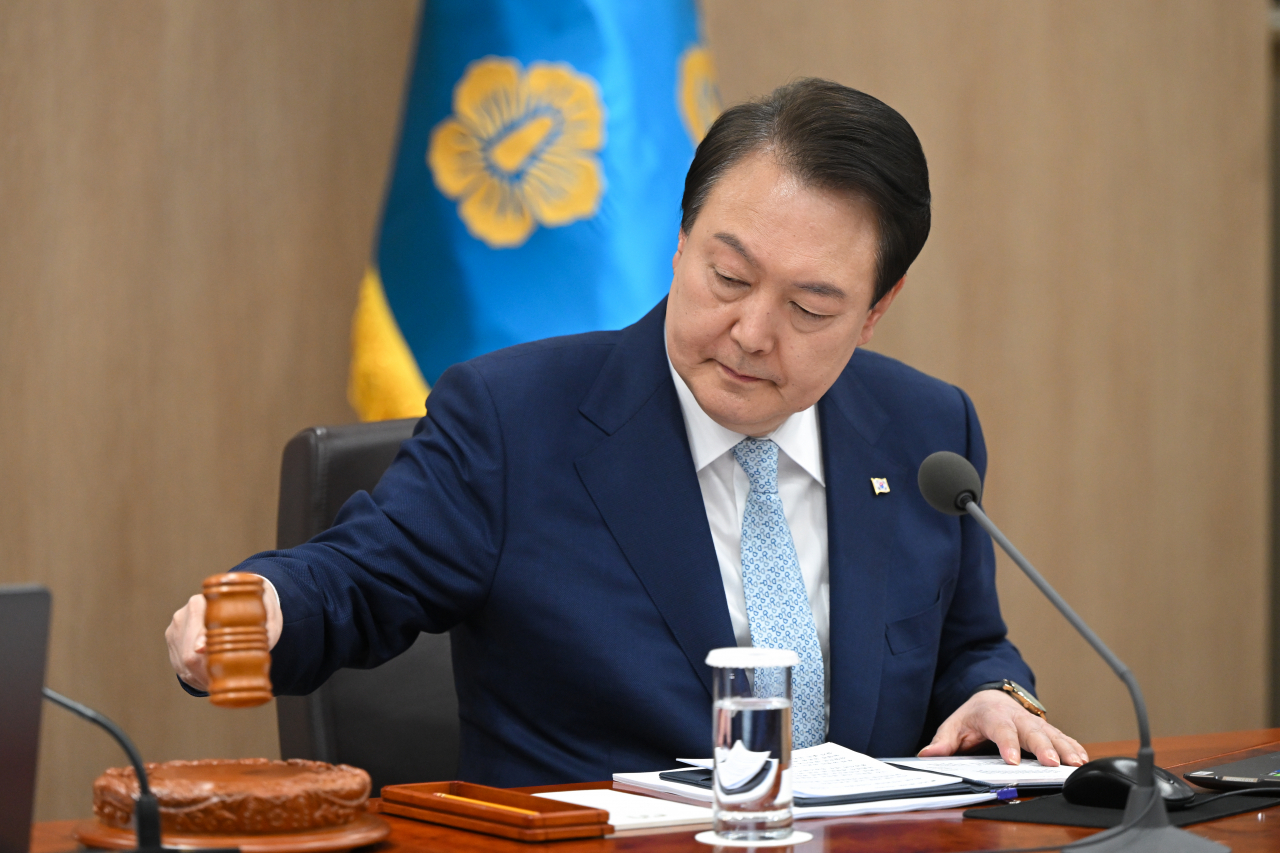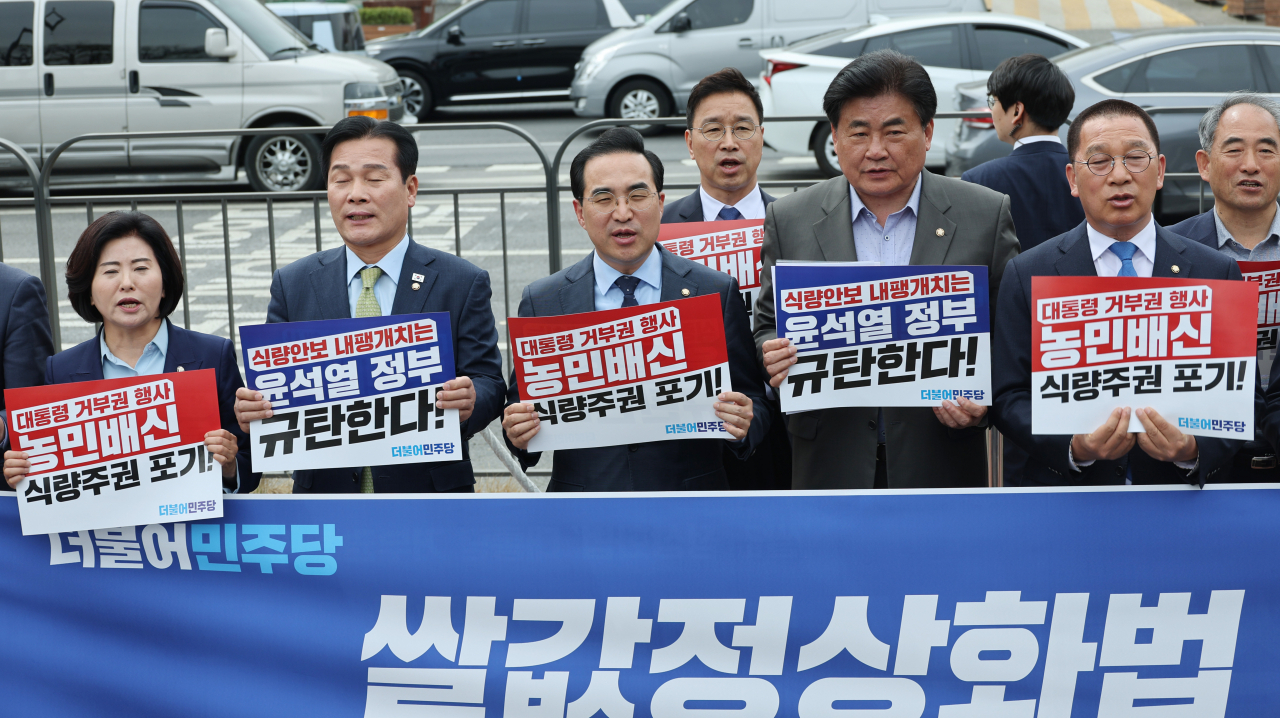Yoon vetoes grain act revision, calls it 'populist bill'
Presidential veto exercised for 1st time in 7 years
By Shin Ji-hyePublished : April 4, 2023 - 15:27

President Yoon Suk Yeol has exercised his presidential veto for the first time to reject a bill designed to revise the Grain Management Act, a bill that requires the government to purchase excess rice yields.
Calling it a typical populist tactic, Yoon vetoed the bill passed by the National Assembly because it would place financial burden on the government, according to the presidential office. This marks the first veto by a Korean president in seven years. The bill was passed last month by parliament where the main opposition Democratic Party holds a majority.
The Grain Management Act is designed to secure stable food supplies through the efficient management of the supply and demand for grain. The proposed revision mandates that the government purchases all excess rice production when the surplus production exceeds 3-5 percent of the demand or when the price of rice falls by 5-8 percent compared to the previous year.
President Yoon has repeatedly expressed his opposition to the revision, citing concerns that it could impose a significant financial burden on the government and incentivize the overproduction of rice, ultimately impeding agricultural competitiveness.

During the Cabinet meeting on Tuesday morning, President Yoon expressed his regret over the bill passed unilaterally by the main opposition party, despite the government raising concerns over the adverse effects of the revision.
Yoon criticized the bill saying that it jeopardizes the government’s agricultural policy goal of increasing agricultural productivity and raising farm household income.
“The amendment to the act is a forced purchase of surplus rice, which requires the government to buy all of the surplus rice at the cost of huge taxpayer’s money, regardless of the amount of rice consumed in the market,” he said.
The president urged related ministries, including the Agriculture Ministry, to promptly come up with measures to stabilize rice supply and demand, increase farm household income and develop agriculture.
With the president's veto, the bill returns to the National Assembly. The main opposition party appears determined to put the bill to a vote again.

Floor leader Park Hong-keun lashed out at Yoon, saying that he was ignoring the will of the people.
According to the National Assembly Research Service, there have been 66 cases in which previous presidents have exercised their veto power. The most recent was in May 2016 when former President Park Geun-hye was in office. President Moon Jae-in never exercised his right to veto.
The first former President Syngman Rhee exercised his veto 45 times. However, since then, instances of presidents using their veto rights have decreased significantly. Former President Roh Tae-woo exercised his veto seven times, former President Roh Moo-hyun six times, former President Lee Myung-bak once, and former President Park Geun-hye twice.








![[KH Explains] Hyundai's full hybrid edge to pay off amid slow transition to pure EVs](http://res.heraldm.com/phpwas/restmb_idxmake.php?idx=644&simg=/content/image/2024/04/18/20240418050645_0.jpg&u=20240419100350)







![[From the Scene] Monks, Buddhists hail return of remains of Buddhas](http://res.heraldm.com/phpwas/restmb_idxmake.php?idx=652&simg=/content/image/2024/04/19/20240419050617_0.jpg&u=20240419175937)

![[KH Explains] Hyundai's full hybrid edge to pay off amid slow transition to pure EVs](http://res.heraldm.com/phpwas/restmb_idxmake.php?idx=652&simg=/content/image/2024/04/18/20240418050645_0.jpg&u=20240419100350)

![[Today’s K-pop] Illit drops debut single remix](http://res.heraldm.com/phpwas/restmb_idxmake.php?idx=642&simg=/content/image/2024/04/19/20240419050612_0.jpg&u=)